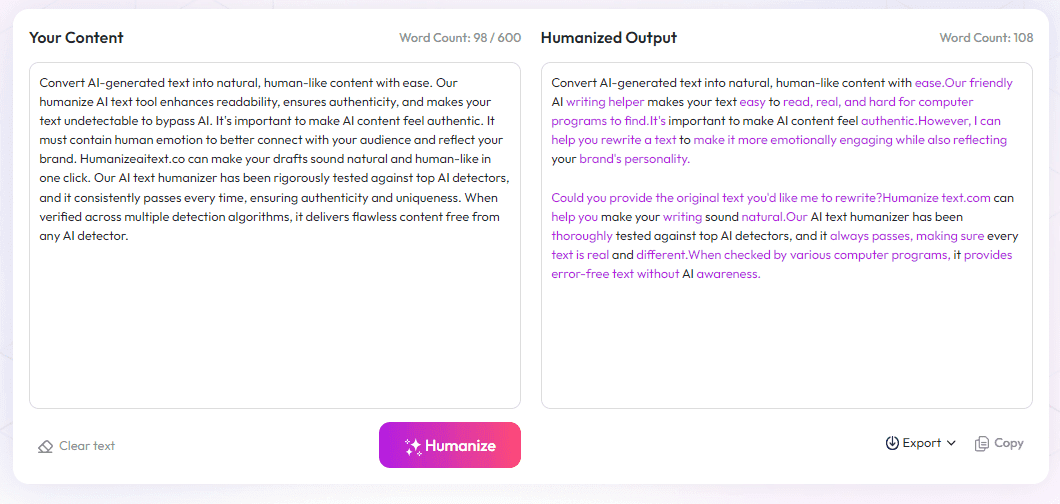Table of Contents
Looking for a way to share your work or ideas online? You might have noticed that choosing the right publishing platform can feel overwhelming, like finding a needle in a haystack.
Stick with me, though—if you keep reading, I’ll show you some clear tips to pick a platform that fits your needs without the hassle.
We’ll cover what open source publishing platforms are and how to select the best one for your projects—all in a simple, friendly way.
Key Takeaways
Key Takeaways
- Choose an open source publishing platform based on your content type, technical skill, and budget. For scholarly work, Janeway is ideal; for creative content, options like WordPress or Amazon KDP work well.
- Consider how much control you want over workflows and automation. Some platforms offer customization, while others are easier for small projects or beginners.
- Find a platform with active community support and regular updates to avoid security issues and stay current with features.
- Factor in costs like hosting, plugins, and potential expert help, even though many open source tools are free. Plan for long-term growth as your audience expands.
- Ensure the platform can import existing content smoothly, backing up files beforehand to prevent data loss during migration.
- Prioritize security features like HTTPS, regular updates, and privacy protections to keep your content and users safe.
- Look for integrations with analytics, social media, and multimedia tools to enhance your publishing reach and engagement.
- Community support, forums, and developer activity are key to troubleshooting and customizing your platform effectively.
- Stay aware of future trends like AI, multimedia, and decentralized publishing, which can boost your content’s relevance and control.

Open Source Publishing Platforms: A Clear Guide to Choosing the Right Solution
When it comes to sharing your ideas or research with the world, choosing the right open source publishing platform can make all the difference. Open source platforms offer transparency, flexibility, and community support, which are perfect for writers, researchers, and small publishers.
Did you know that 96% of organizations have increased or kept their use of open source software over the past year? This surge is reflected in the digital publishing realm as well, with the global digital publishing platforms market valued at USD 2.87 billion in 2025 and expected to grow at an 8.2% CAGR through 2037. This growth signals more options for creators looking to publish openly and efficiently.
The first step in choosing an open source publishing platform is understanding your needs. Are you publishing scholarly articles, creative content, or educational materials? Different platforms cater to different types of users.
For example, Janeway is an open source platform specifically designed for scholarly publishing, supporting the entire workflow from submission to publication. If you’re a researcher wanting to maintain control over your publication process, Janeway could be a good fit.
However, if you’re more interested in creating digital books, magazines, or interactive content, other solutions like WordPress with open source plugins, or platforms like Medium content on Amazon KDP, might serve you better. These options often come with a wealth of customizable templates and community support, making them versatile choices for different content types.
Another factor is whether you need a platform that supports full automation or one that offers more hands-on control. Open source options like Janeway excel in providing customizable workflows, ideal for publishers with specific needs, while simpler solutions might suit individual bloggers or small teams better.
Cost is also a big deal—many open source publishing tools are free. Still, it’s smart to consider hosting costs, plugin expenses, and the potential need for technical help, especially if you’re new to digital publishing. Some platforms, like coloring books or graphic novels, require specific tools or plugins, so keep those in mind.
Since open source platforms often evolve rapidly, it's wise to check for active communities and regular updates. For instance, publishers are increasingly embracing open source internet identity tools—something to consider if you want to establish a strong online presence.
To make an informed choice, think about your content type, technical skills, budget, and long-term goals. Do you want a platform with a vibrant community, or are you comfortable customizing a more niche solution? Finding the right match can significantly boost your publishing success and visibility.

How to Choose the Best Open Source Publishing Platform for Your Needs
Picking the right platform isn't just about features; it's about matching your goals, skills, and budget.
Start by listing what you need: Do you want a simple blog, a full scholarly journal, or an interactive ebook?
Evaluate platforms based on ease of use, customization options, community support, and scalability.
Test out a few options with small projects; many open source tools are free to try before committing.
Check the platform's update history and user feedback to see how active and reliable it is.
Also, consider available plugins or integrations that could save you time, like SEO tools or multimedia support.
Read case studies or reviews from similar creators to get a sense of what works well in your field.
Lastly, think about your long-term plans — will the platform grow with your project?
Top Features to Look for in an Open Source Publishing Platform
Certain features can make or break your publishing experience, so keep an eye out.
Look for customizable workflow options if you want control over editing, peer review, or publishing stages.
A good platform should support multiple formats — PDFs, EPUBs, interactive HTML, and more.
Community support and active development mean you're less likely to face bugs or security issues.
Integration with social media or marketing tools can help you reach a wider audience.
Support for multimedia elements like images, videos, or interactive components is a plus especially for creative content.
Automation features — such as scheduled publishing or updates — can save time, particularly for frequent publishers.
Finally, robust analytics or tracking options help understand reader engagement and improve your content.
The Role of Community & Support in Open Source Publishing Platforms
Open source projects thrive on active communities, and that’s a huge advantage for publishers.
A vibrant community can provide quick help, advice, and shared resources, saving you from reinventing the wheel.
Look for platforms with forums, chat groups, or extensive documentation.
Regular updates based on user feedback mean the platform stays relevant and secure.
Some communities even develop plugins or add-ons that can extend functionality for your specific needs.
If you're new to digital publishing, community support can make the learning curve much smoother.
It’s also good to see how responsive the maintainers are—quick fixes and active development signal a healthy project.
Costs and Budget Considerations for Open Source Publishing Platforms
Though many open source tools are free, running a publishing platform isn't always cost-free.
Hosting services, domain registration, and SSL certificates can add up, so plan accordingly.
Some platforms require premium plugins or themes to unlock advanced features — budget for those if needed.
You might need technical help, especially during setup or customization, which could come with a fee.
Remember, investing in quality hosting can improve site performance and security.
If you’re testing several options, consider starting with a manageable setup to avoid unnecessary expenses.
In the long run, choosing a platform that scales well can save money as your audience grows.
Managing Content Migration & Compatibility with Open Source Platforms
Moving your existing content onto a new platform can feel daunting but planning ahead makes it easier.
Check whether the platform supports importing files directly from your current CMS or formats.
Look for plugins or tools that facilitate migration, especially if you have lots of multimedia or complex formatting.
Test a small batch first to see if everything transfers correctly and retains quality.
Be aware of compatibility issues; some platforms might have limitations on file types or structures.
Always back up your content before starting a migration to prevent data loss.
Maintaining a consistent look and feel during migration helps retain your branding and reader familiarity.
Security & Privacy in Open Source Publishing Platforms
Security isn’t just a concern for big websites — your publishing platform needs it too.
Open source software allows you to inspect and improve security, but also requires ongoing vigilance.
Use secure hosting solutions, enable HTTPS, and keep your platform and plugins updated.
Protect your authors’ and readers’ data by complying with privacy regulations and implementing best practices.
Many platforms support plugins for spam filtering and malware protection, which are good safeguards.
Regularly review access controls and user permissions to prevent unauthorized changes.
Consider integrating identity verification tools if your content involves peer review or sensitive information.
Integrating Open Source Publishing Platforms with Other Tools
To get the most out of your platform, integration with other software is key.
Connect your platform to analytics tools like Google Analytics for insights on reader behavior.
Link with social media management tools to autopublish updates and engage your audience.
Use API integrations to connect with email marketing services or content repositories.
If you're creating interactive content, consider integrating multimedia and e-learning tools.
Many platforms support API hooks or plugins that make connecting with other software pretty straightforward.
Test these integrations early so you can troubleshoot issues before launch.
Future Trends in Open Source Digital Publishing
Open source publishing is constantly evolving, and staying ahead means keeping an eye on emerging trends.
AI and machine learning are increasingly used to personalize content and improve recommendations.
The rise of blockchain-based tools could enhance copyright management and attribution.
More platforms support multimedia and immersive content, including virtual and augmented reality.
Decentralized publishing models might reduce reliance on centralized hosting, giving creators more control.
Interoperability between platforms is expected to improve, making migration and multi-platform publishing easier.
Look out for new open source tools that automate tasks like editing, proofreading, and formatting.
Keeping up with these trends ensures your publishing setup remains relevant and competitive.
FAQs
Open source publishing platforms are software solutions that allow users to create, manage, and distribute content freely. They are built on open source code, enabling customization, community collaboration, and cost-effective publishing options for various content types.
Consider factors like ease of use, customization options, community support, scalability, and compatibility with your existing tools. Evaluating your project's goals helps identify the platform with the right features and flexibility.
Open source solutions often reduce costs, allow for tailored modifications, foster community collaboration, and provide transparency. They give users control over their publishing environment and support for a wide variety of integrations.
Yes, many open source platforms are designed to handle large volumes of content, with scalable architecture and strong community support. They can be customized to meet the demands of extensive publishing projects.



